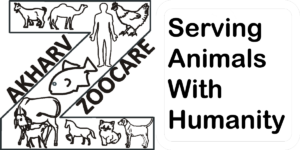Introduction:
Contagious Ecthyma, commonly known as Orf, is a viral skin disease that affects sheep and goats. This ailment, caused by the Orf virus, is highly contagious and can have significant economic implications for farmers. In this blog post, we aim to provide a comprehensive yet simple explanation of Contagious Ecthyma, focusing on the Indian audience.
Understanding Contagious Ecthyma:
- Causative Agent:
Contagious Ecthyma is caused by the Orf virus, a member of the Poxviridae family. The virus primarily targets the skin, resulting in characteristic lesions. - Transmission:
The virus spreads through direct contact with infected animals or contaminated environments. Wounds, scratches, or breaks in the skin create entry points for the virus, facilitating its transmission. - Clinical Signs:
- Lesions: The most noticeable sign is the development of small, raised, and often painful lesions on the lips, gums, udders, and hooves of infected animals.
- Scabs: Lesions progress to form scabs, which eventually fall off, leaving behind healed skin.
- Symptoms in Indian Context:
- Reduced Milk Production: Infected udders may lead to a decrease in milk production, affecting dairy farmers.
- Lip Lesions: As sheep and goats often graze on various vegetation, lip lesions can interfere with their feeding habits.
Prevention and Control:
- Vaccination:
- Regular vaccination is crucial for preventing Contagious Ecthyma.
- Consult with local veterinary authorities to understand the recommended vaccination schedule.
- Hygiene Practices:
- Implement strict biosecurity measures to prevent the introduction of the virus.
- Regularly disinfect equipment, feeding troughs, and other shared spaces.
- Prompt Isolation:
- Isolate infected animals to prevent the spread of the virus within the flock.
- Provide separate feeding and watering facilities for isolated individuals.
- Wound Management:
- Attend to wounds promptly and keep them clean to minimize the risk of infection.
- Educational Initiatives:
- Educate farmers about the symptoms, transmission, and preventive measures.
- Encourage reporting of suspected cases to veterinary authorities.
Economic Impact on Indian Farmers:
Contagious Ecthyma can have a significant economic impact on farmers in India, especially those relying on dairy production and small-scale animal husbandry. Reduced milk production, treatment costs, and potential mortality can lead to financial losses.
Conclusion:
Contagious Ecthyma poses a threat to the well-being of sheep and goats in India. By understanding the causative factors, and clinical signs, and adopting preventive measures, farmers can protect their livestock and ensure the sustainability of their agricultural practices. Collaboration between farmers, veterinary authorities, and local communities is essential in controlling the spread of Contagious Ecthyma and safeguarding the livelihoods of those dependent on sheep and goat farming in India.

